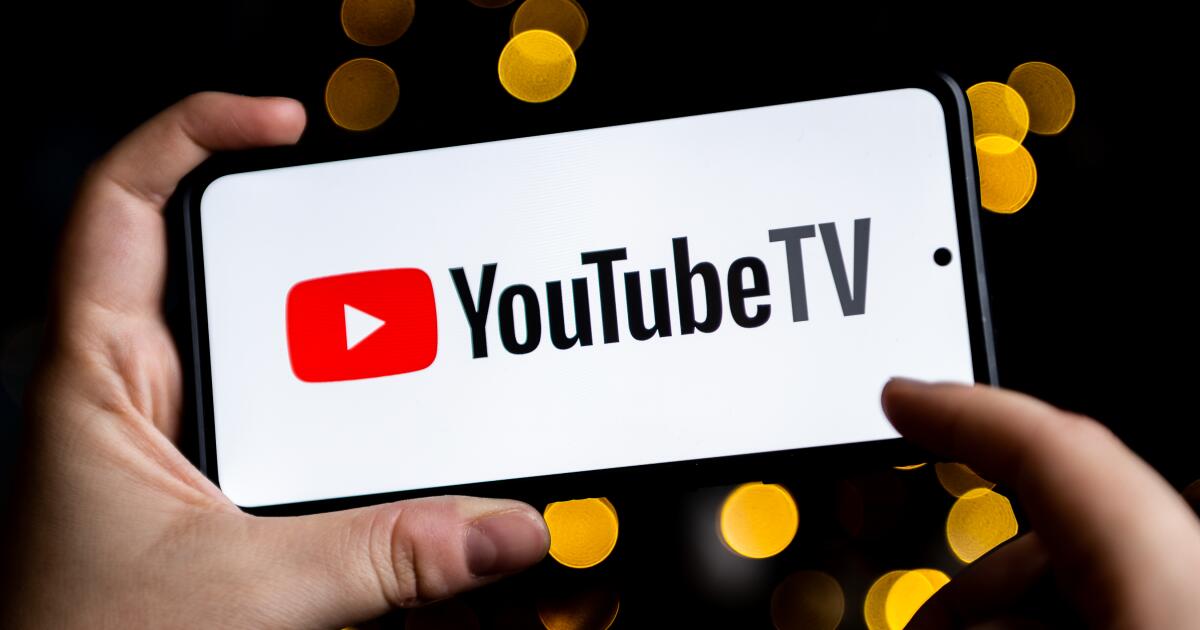YouTube TV dropped Univision’s Spanish-language networks late Tuesday, a contentious turn in a simmering dispute that has already drawn scrutiny from members of Congress.
“Google’s YouTube TV has refused to ‘Do the Right Thing’ and dropped Univision from its platform — stripping millions of Hispanic viewers of the Spanish-language news, sports, and entertainment they rely on every day,” parent company TelevisaUnivision said in a statement, alluding to its campaign slogan.
The outage began about 7 p.m. PDT, shortly before the federal government shutdown — a national news story that Univision journalists have been covering. In addition to Univision and Unimas programming, the blackout covers the company’s local stations, including its flagship KMEX-TV Channel 34 in Los Angeles and outlets in San Diego, San Francisco, Fresno and Bakersfield.
The impasse occurred as another deadline loomed in separate contract talks between YouTube TV and NBCUniversal, raising the possibility of a second blackout. Both Univision and NBCUniversal’s distribution agreements were set to expire Tuesday night. But at the deadline, NBCUniversal granted YouTube TV a short-term extension to allow the two sides additional time to continue working on a new deal.
NBCUniversal, which owns Telemundo, the other major Spanish-language broadcaster, has more TV networks and NFL “Sunday Night Football,” and thus, more leverage in negotiations.
Univision’s lineup includes news, dramas, popular soccer matches and games during next week’s Major League Baseball playoffs, which could feature the Dodgers should the L.A. team advance to the next round.
“Univision is a trusted voice for Hispanic Americans, especially in times of emergencies, elections and for other critical news and events,” TelevisaUnivision Chief Executive Daniel Alegre wrote in an open letter last week when the company launched its “Do the Right Thing Google” campaign that included outreach to major politicians.
Univision broadcasts the popular “Premio Lo Nuestro” music awards show.
(Univision)
Alegre added that Latinos could form a pivotal voting bloc in redistricting battles in California and Texas, governor races in New Jersey and Virginia, and next year’s midterm elections in contested states such as Georgia and Florida.
Prominent members of Congress, including Sen. Ted Cruz (R-Texas), Sen. Bernie Moreno (R-Ohio) and Rep. Mario Diaz-Balart (R-Fla.), have demanded answers from Google executives, including Chief Executive Sundar Pichai. Some lawmakers expressed concern that both major outlets — Univision and Telemundo — would be dropped.
A major sticking point in the Univision talks was YouTube TV’s proposal to shift the company’s channels from its basic plan, which is available to all subscribers, and put the Univision channel on a more expensive Spanish-language add-on package.
Univision cried foul, saying the switch would amount to an 18% rate increase for its Spanish-language viewers. The move would also dramatically cut the revenue the broadcaster receives because YouTube and other distributors pay fees based on the number of subscribers that have access to a channel.
“Google shouldn’t be abusing its monopoly power by forcing millions of Texans & Americans to pay extra for Spanish-language programming,” Cruz said in a message on X. “That’s not right & it’s not fair.”
YouTube is flexing its market muscle. Google has become the dominant video provider in the U.S., according to Nielsen, with the main YouTube platform attracting more than 120 million active daily users.
The YouTube TV service also has become a major draw with more than 10 million customer homes that receive traditional TV channel packages that include NBC, ABC, Fox News and Comedy Central.
A YouTube spokesperson downplayed Univision’s departure, saying the Spanish-language company continues to have a massive following on its main YouTube site with more than “160 million subscribers and billions of views across YouTube, where they generate ad revenue from their content.”
However, on the paid service, YouTube TV, the Spanish-language programming “only represents a tiny fraction of overall consumption,” the YouTube spokesperson said.
The blackout comes a month after YouTube avoided a collision with Rupert Murdoch’s Fox Corp. The two companies hammered out a new distribution deal a few days after the August deadline.
NBCUniversal’s talks with Google have also been rocky. The tech behemoth has expressed a desire to fold Peacock programming onto its YouTube TV platform rather than the current stand-alone service. But NBCUniversal has balked because it has spent billions of dollars building Peacock and it wants to remain the conduit for its customers.
YouTube TV launched in April 2017 for $35 a month. The package of channels now costs $82.99.
In a bid for more sports fans, YouTube TV took over the NFL Sunday Ticket premium sports package from DirecTV, which had been losing more than $100 million a year to maintain the NFL service. YouTube TV offers Sunday Ticket as a base plan add-on or as an individual channel on YouTube.
